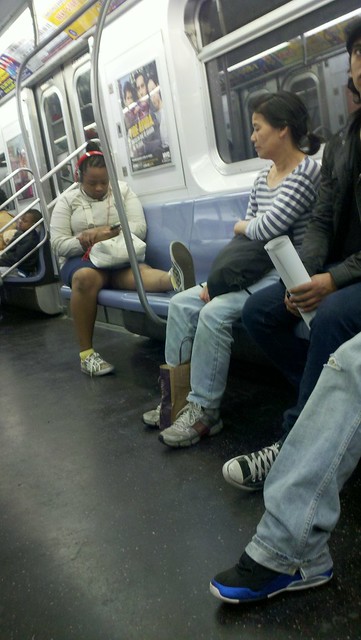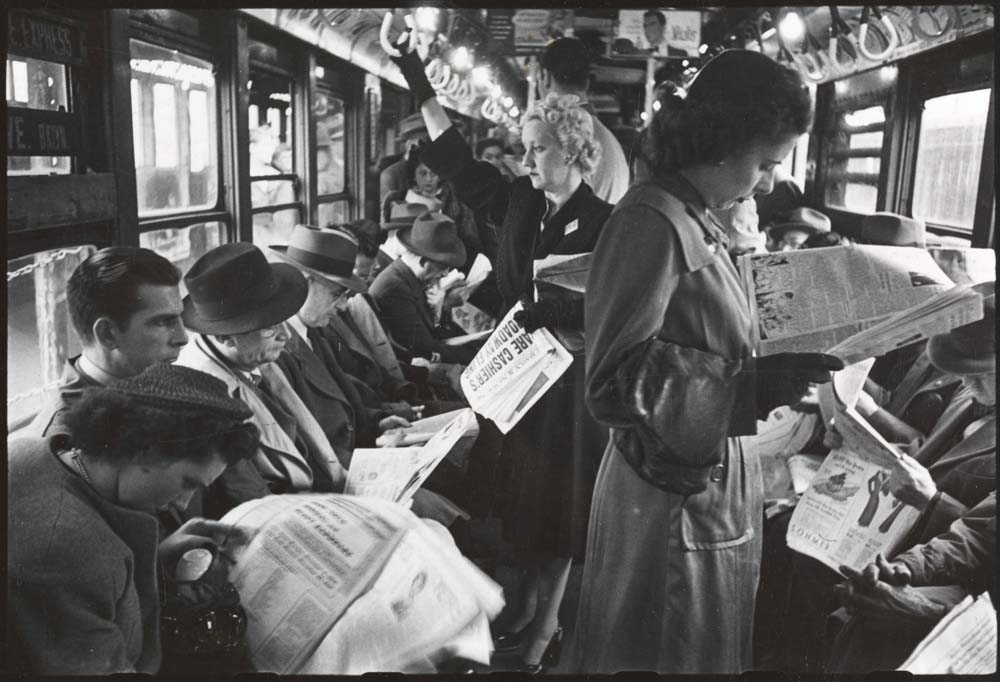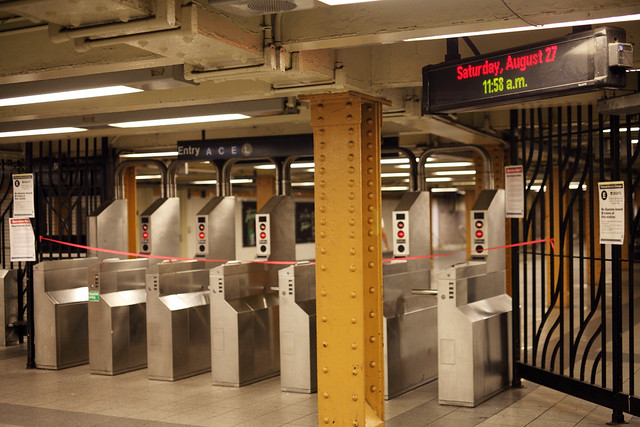Earlier this past fall, the MTA announced an experiment in counter-intuitive thinking. To combat trash, the authority announced a two-month, two-station removal of trash cans. A few months into the pilot, the MTA found less trash and no increase of litter at the targeted stations, but the authority isn’t yet to ready to draw concrete conclusions. Instead, as amNew York reported this morning, Transit will expand this program to include more stations and a better public outreach campaign.
According to Transit president Tom Prendergast, the isolated stations do not provide the MTA with enough information on how people are adjusting their trash-related habits. “Two doesn’t give you enough for a sample,” he said. “We’re going to expand it.”
Various stakeholders, though, clearly do not have particularly high hopes for New Yorkers’ abilities to keep things clean. Marc Beja had more:
MTA board member Andrew Albert said he hasn’t been briefed on the new plan, but thinks it might work in lesser-traveled stations. “If it’s really scant usage in the trash cans and apparently no litter around, then that may be a good candidate at the pilot,” Albert said, though he is doubtful straphangers will hold onto their garbage instead of tossing it on the floor.
“That means taking newspapers and used coffee cups and taking them out of the station and searching for another trash can,” Albert said. “I don’t see people doing that.”
An MTA spokesman wouldn’t discuss details of the plan last week, saying they haven’t been finalized…One tweak being made for the MTA program’s expansion — expected as early as this summer — is notifying riders. When the pilot started in October, the MTA quietly removed the bins without telling straphangers. “We need to explain to people what we’re doing and why we’re doing it,” Prendergast said.
Meanwhile, predictably enough, union officials called upon the MTA to spend more money on their employees who half-heartedly clean stations instead of combating the root of the letter problem. “We’re spending money to change people’s ways?” Derrick Echevarria, the head of the TWU’s Stations Division, said. “Let’s spend money to clean the stations.” Why not both? Or neither? I’ve yet to hear a compelling argument for why the MTA should be in the garbage-removal business as much as they currently are.
As amNY noted, the PATH system, Transit’s counterpart, has no garbage cans and barely any litter. The Port Authority removed trash receptacles under the guise of security, but an initial period of aggressively combating litter has led to a much cleaner system. If Transit is serious about combating litter, rats and the costs associated with keeping the system free from garbage, enforcement will at some point become a necessity.





